| ‹ 1996 | ||||
| United States Presidential Election, 2000 | ||||
|---|---|---|---|---|
| November 7, 2000 | ||||

|

|

| ||
| Nominee | Joe Biden | John McCain | Ron Paul | |
| Party | Democratic | Republican | Reform | |
| Home state | Delaware | Arizona | Texas | |
| Running mate | John Lewis | Christine Todd Whitman | Gary Johnson | |
| Electoral vote | 279 | 242 | 17 | |
| States carried | 19+DC | 28 | 3 | |
The 2000 Presidential Election was the 54th quadrennial Presidential Election in United States history, and the first to take place in the 21st century. Due to the fact that President Al Gore was unable to run for a third time due to Constitutional Term Limits, it was an open race, pitting Democratic Senator from Delaware Joseph "Joe" Biden against Republican Senator from Arizona John McCain, with Texas Congressman Ron Paul representing the Reform Party. Despite the popularity of President Gore going into the election, the election proved to be one of the closest in US history, owing to the strength of Paul as a third party candidate, as well as the presence of consumer advocate Ralph Nader on the Green Party ticket, who proved to draw significant votes in key states despite not winning any electoral votes of his own. Irregular vote totals in the state of Florida led to a dispute in the election, which had originally been certified as a Democratic victory by a margin of just under 600 votes. Republicans demanded a recount of the votes, as well as throwing out several ballots for Paul, stating that they should have been counted as votes for McCain, given the ballot that was used.
In the end, the Supreme Court ruled in the case McCain v. Florida that the recounts should stop, as they had previously certified Biden as the winner. Had McCain been successful in winning the state, it would have resulted in no candidate receiving a majority in the Presidential Election, throwing it to the House where Republicans controlled a majority of state delegations and would likely have voted McCain to be President. Instead, with the Supreme Court decision, Biden was certified the winner with 279 electoral votes to McCain's 242 and Paul's 17. Biden also won the popular vote, but only by roughly 50,000 raw votes nationwide.
With the victory, Representative John Lewis of Georgia became the first African American to be elected and serve as Vice President of the United States.
Democratic Primaries[]
Many people considered the frontrunner to the Democratic nomination to be Vice President Mario Cuomo of New York. He had previously been a potential candidate in the 1984, 88 and 92 elections, and had accepted the Vice Presidential slot in 96 following the stepping down of then VP Paul Tsongas for health reasons. Cuomo had served admirably in the role, and many assumed that he would finally run for President in 2000. However, Cuomo surprised everyone midway through 1999 when he said that he would retire from public office after his term as Vice President expired, making a Sherman Statement to this effect of "Whether asked, nominated or even elected, I will not serve in any further electoral capacity."
This opened up the floodgates of Democratic challengers to become the heir apparent to the Gore Presidency. The early frontrunners were Former New Jersey Senator Bill Bradley, Delaware Senator Joe Biden, Massachusetts Senator John Kerry and House Minority Leader Dick Gephardt of Missouri. Other candidates included Vermont governor Howard Dean, Washington governor Gary Locke, Former Alaska Senator Mike Gravel, Former California Congressman Leon Panetta, Former Illinois Senator Carol Moseley Braun, Ohio Congressmen Dennis Kucinich and Jim Traficant and 1988 Presidential Nominee the Reverend Jesse Jackson, though he withdrew from the race early on citing health concerns. President Gore bowed to tradition and remained neutral in the race, refusing to endorse any candidate until the primary was completed.
The race largely came down to the Progressive Wing of the party (championed by Bradley, Dean, Jackson and Kucinich) against the more moderate Gore wing of the party (led by Biden & Kerry), with the former advocating for more sweeping domestic changes like a single payer health care system, or failing that Medicaid expansion. They also advocated using the surplus in the US budget for a massive infrastructure project that would largely focus on converting US power to so-called green energy, such as wind and solar. The more moderate wing advocated shoring up Social Security and protecting the moderate gains made during the Gore years from Republican backlash, stating that the far left of the party would put Republicans in power who would undo the entire Gore agenda for the last 8 years. Early on in the primary debates, it became clear that Biden and Bradley were the frontrunners. This became even more clear when the New York Times reported that people within the Gore administration, though not the President himself, were actively encouraging other candidates to end their campaigns and support Biden, making the Senator the de facto endorsed candidate by the President.
Bradley cried foul and started a sort of insurgency campaign, riding the momentum to a strong 2nd place finish in Iowa behind favored son Gephardt, while also shocking everyone with a win in New Hampshire. Bradley appeared headed for the nomination, but Biden remained in tact and won the South Carolina and Tennessee primaries back to back, saving his campaign and ending Bradley's momentum. Bradley wouldn't win another contest, and Biden would become the presumptive nominee.
Several individuals were considered for Biden's VP pick, but ultimately Biden decided to shore up support with African Americans by selecting Civil Rights Icon and Georgia Congressman John Lewis for the #2 spot on the campaign, though Locke, Connecticut Senator Joe Lieberman and Indiana Senator Evan Bayh were also considered.
Gallery of Democratic Candidates[]
Republican Primaries[]
If the Democratic primary was a free for all, the Republican primary was a Battle Royale. Following their drubbing in the 1996 election, the Republican party looked long and hard for a standard bearer that could unite the disparate factions of the party. Several candidates made their intentions known to run for the Party's nomination in 2000, including perennial candidate Pat Buchanan and Liberty University founder Rev. Jerry Falwell. The leading candidate was House Speaker Newt Gingrich of Georgia, but his presence did not deter other major candidates from entering, including 1996 nominee Steve Forbes, Texas governor George W. Bush (the son of former President George H.W. Bush), Arizona Senator John McCain, New Jersey governor Christine Todd Whitman and former Kemp Secretary of Transportation and First Lady Elizabeth Dole. Other candidates included Indiana senator Richard Luger, Wisconsin Governor Tommy Thompson, Utah Senator Orrin Hatch, New Hampshire Senator Bob Smith, Ohio Congressman John Kasich, Former Fed. Reserve Board Member Herman Cain and former ambassador Alan Keyes.
Despite being an early frontrunner, Gingrich's campaign was torpedoed before the Iowa caucus by the revelation that he had an affair with his current wife while his previous wife was dying. This would also cause him to resign from the House, turning over the speakership to Dennis Hastert in 2001. After a whirlwind of activity, it became clear that Bush and McCain were the clear frontrunners in the race. Bush banked on his family name, which despite the fact that his father had resigned in disgrace a decade earlier, had seen a rebound in terms of value, as George W. had defeated popular governor Ann Richards in the Republican landslide of 94. McCain parlayed his status as a Vietnam War Hero combined with his reputation as a "Maverick" Senator. He launched a bus tour known as the Straight Talk Express, campaigning heavily across the country (but particularly in New Hampshire) to appeal to the more independent minded Republican voters. The GOP establishment seemingly backed Bush over McCain, pushing the idea of "compassionate conservatism" to dull the rough edges that individuals like Buchanan had exposed. Despite his status of having won the nomination 4 years earlier, Forbes was largely an outsider, and considered a distant third behind Bush and McCain.
This was slightly upended with the Iowa Caucuses, which saw Falwell eek out a victory over Bush to the surprise of many. Backed by the evangelical voter base, Falwell suddenly became a strong candidate over night and split the evangelical vote with Bush. This allowed McCain to score a strong victory in New Hampshire. By the time the South Carolina primary rolled around, Falwell's presence on the ballot effectively killed the advantage that Bush had amongst evangelical voters, and despite a shady push poll campaign against the Senator (which alleged he had an African American son out of wedlock, among other things), McCain was able to score a narrow victory in the South Carolina primary. While Bush did edge out Falwell in the long run, he was never able to regain the momentum he needed to fully capture the nomination, allowing McCain to win the nod in something of an upset.
Bush's tactics during the primary would also cost him the #2 spot on the ticket, allegedly, as McCain didn't trust Bush or the people around his campaign. Despite a weakness amongst the evangelical base of the GOP, McCain went with his gut and chose another moderate for the #2 spot on his ticket, picking New Jersey governor Christine Todd Whitman to be his running mate, the first woman on a GOP ticket.
Gallery of Republican Candidates[]
Reform Party Primaries[]
Looking to build off their successes in 1992 and 96, the Reform Party held their first series of primaries and nominating conventions in 2000. The field was considered wide open for the nomination, as Party Founder H. Ross Perot had made clear he would not seek to run for President a third time due to his advancing age. Many expected former professional wrestler Jesse Ventura to run, given that he had shocked the world by winning the Minnesota governorship. Ventura made clear though that, while he would accept the nomination, he would not actively campaign for it in 2000. Another draft effort was made for Retired General Norman Schwarzkopf, with similar results.
Thus the field fell to Texas Congressman Ron Paul, the only Reform party member serving in federal office at that time, as he ran against businessman Donald Trump, whom Ventura had convinced to run. Economist Pat Choate and 1996 Vice Presidential Nominee Richard Lamm also sought the nomination, though they failed to gain any real traction. For Trump, he gained a lot of free publicity for his campaign, appearing on several news shows, but did not actively present any policy positions. Following the first two nominating conventions (which were held regionally as opposed to state by state) in which Paul defeated Trump, the businessman suspended his campaign (though he briefly flirted with running as an independent candidate, ultimately he decided not to run.) This de facto made Paul the presumptive nominee. Congressman Paul selected New Mexico governor Gary Johnson, a former Republican who had joined the Reform Party in 1998, as his running mate, though it was widely reported that Paul had asked Ventura to serve in the role and he had refused the job.
Gallery of Reform Party Candidates[]
General Election Campaign[]
Despite a decent economy (though having suffered a significant downturn from the dot com bubble bursting in March of that year) and a reasonably popular President, early polls showed the GOP with a decent shot of unseating whomever the Democratic nominee was. Once it was clear it was a McCain/Biden matchup, the polls evened out and remained a dead heat throughout the summer and fall. The candidates themselves largely allowed surrogrates to serve as attack dogs for their respective campaigns,in an attempt to remain above the fray. Biden ran on Gore's record as well as the role he had played in several of his legislative accomplishments (including the Motor Voter Law, the Violence Against Women Act and the Violent Acts Enforcement Crime bills that Biden had either written or co-written in the Senate.) He also promised to "fix" the issues with Gore's foreign policy, relying more on dialogue and less on military intervention. He did criticize McCain for being a "Hawk" on wars, particularly against the Taliban regime in Afghanistan and the resurgent Iranian regime, which had grown emboldened during the 2nd Iraq War. Presciently, Biden planned a summit to find peace between newly minted nuclear powers India and Pakistan over the Kashmir region, though this summit wouldn't ever materialize due to other concerns. Biden's chief criticism wasn't lobbed at McCain himself, but rather the party he represented, which Biden claimed would "mangle the Social Safety net that so many people rely on to get by beyond any sort of recognition."
McCain, on the other hand, attacked Gore (and by extension, Biden) for unconstitutional overreach, particularly in actions concerning the 2nd amendment (though McCain had voted for the Brady Handgun Bill in 1993, he also opposed an assault weapons ban passed in 1995 as well as newer gun legislation proposed in the wake of the Columbine shooting.) McCain and gun violence would become something of a hotly debated issue, as he blamed everything from violent video games to song lyrics to Ultimate Fighting as a reason for why society had become more violent. McCain also attacked Gore's healthcare law, though not to the extent that many others in his own party (or to the extent of the Reform Party) had during the Primaries. McCain proposed allowing people to "opt out" of Medicare taxes; giving up or delaying their chances on being in Medicare when they are older as a way of purchasing health insurance now. Largely this was designed to give greater freedom of choice and try and lower health care costs, the idea being that health care providers overcharged Medicare for routine procedures because of the flush of cash backing it. Critics called the plan a backdoor attempt to starve Medicare.
McCain also touted his own legislative record, particularly in the McCain-Feingold Campaign Finance Law which was debated during the time of the campaign and would have put strict limits on how much corporations could contribute to political campaigns, as well as new restrictions on campaign advertising (such as requiring all candidates for federal office to explicitly state that they approve messages paid for by their own campaigns). In the area of foreign policy, McCain contrasted his record as a Vietnam Veteran versus Biden, who had not served in the military. He promised to increase military spending to make up for "perceived weakness" in the American defense strategy, something which he blamed for the rash of terrorist attacks that had occurred periodically throughout the 90s.
The Reform party largely adopted a more libertarian platform, owing to the political bent of its nominee Congressman Paul. Far right ideas such as abolishing the income tax and the IRS in general, scrapping Social Security and eliminating various government departments (such as the Department of Education) clashed with more liberal leaning ideas such as legalizing marijuana and removing mandatory minimum sentences for non-violent offenses. More than anything Paul criticized both parties, calling the Democrats "Communists in everything but name" and saying Republicans were "slaves to their Wall Street masters." Paul's campaign gained traction through online engagement with young people as well as through several online posters calling themselves "A-Paul-stles", who would go from chat room to chat room and through online forums to expose the virtues of Paul and the Reform Party.
Polling wise, the Reform Party struggled to find footing, despite qualifying for matching funds in the campaign cycle. Initially Paul wasn't going to be included in the Presidential debates, ostensibly due to his lack of strong polling, but also due to pressure from the other two parties. Eventually the parties compromised, agreeing to allow Paul into the debates but reducing them from 3 to 2 Presidential debates and a single Vice Presidential one. In the 2 Presidential debates, Biden and McCain appeared evenly matched, though most people gave a slight edge to McCain on policy while giving an edge to Biden on personability. Paul acted as l'agent provacateur throughout the debates, constantly throwing accusations and zings at the two other politicians. By contrast, Johnson appeared ill-prepared for the Vice Presidential debate between himself, Congressman Lewis and Governor Whitman.
Election Results[]
The election proved to be one of the closest in United States history. Paul and the Reform party overperformed against almost all expectations, winning 17 electoral votes from the states of Wyoming, Colorado and New Mexico, as well as one vote from the state of Maine. They also finished with high vote totals in Arizona and Kansas, outpacing Biden in those states and nearly winning them outright. Their performance, combined with taking votes from the McCain/Whitman ticket, made it mathematically impossible for the GOP to win an outright majority in the electoral college.
However, without the state of Florida, Biden/Lewis couldn't claim victory either. This was largely due to the presence of independent candidate Ralph Nader, who's vote totals in Ohio, Georgia and New Hampshire had caused Democrats to lose the close elections there to the GOP. Florida was the closest state by far, with just over 1,000 votes separating Biden and McCain. McCain actually called Biden to concede the race early the day after the election, only to retract that concession later on due to "voting irregularities." A state ordered recount in several close counties would lower Biden's margin of victory to just 582. McCain petitioned for a statewide recount, as well as throwing out or "reassessing" several questionable ballots that had been marked for Nader. Since Florida ballots were organized by alphabetical placement, these so called "Butterfly Ballots" were used as an explanation for Nader's performance in the state, saying that they were votes that should have gone to McCain or Paul.
As one GOP operative put it, the plan was to win Florida (or somehow drive it to Paul, which wouldn't be out of the realm of possibility), which would throw the election to the House of Representatives where Republicans controlled a majority of state delegations (under the rules of the 12th amendment, each state received one vote as opposed to each Representative) and would presumably elect McCain as President. In any case, a statewide recount was commissioned, but no ballots were thrown out or discounted. The end result was Biden's lead increasing slightly to 593 votes over McCain, which was then certified by Florida's Secretary of State, Katherine Harris. McCain's campaign sued the state of Florida in court, and the Florida Supreme Court initially ruled against him.
The 11th Circuit Court of Appeals ruled in favor of McCain, ruling that Florida had denied him due process of law in examining these results. The case was appealed further to the Supreme Court of the United States who, in a 6-3 ruling, ordered no further manual recounts to continue. McCain would concede the race again that evening, saying that the Court's decision was the "Law of the Land." The whole affair would highlight the difficulties of the American system with a robust third party as the Reform party had transformed into, and would lead to a larger discussion of abolishing the Electoral College (something advocated for by President Gore in his last major policy initiative in January of 2001) constitutionally, though nothing would come of it at the time.
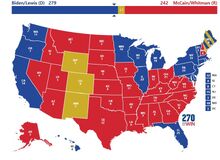

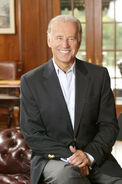
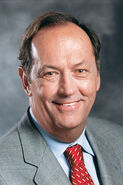

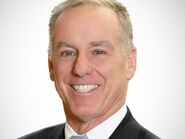

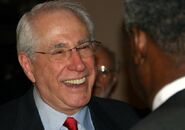
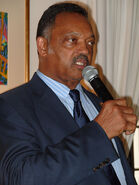

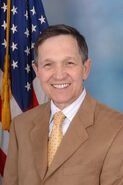
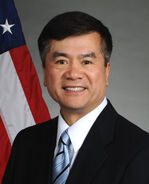
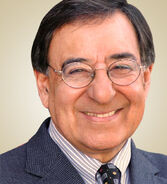
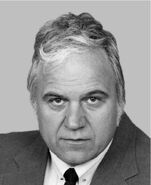
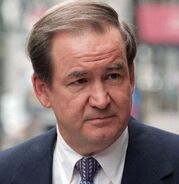

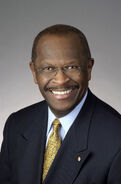
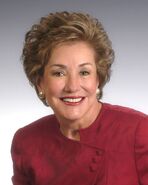
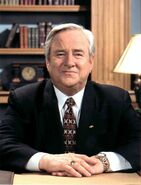
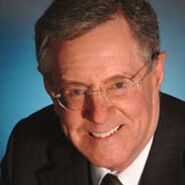
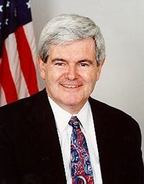

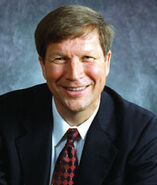

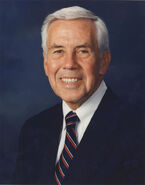


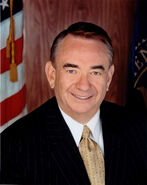
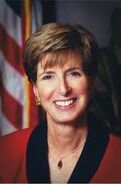
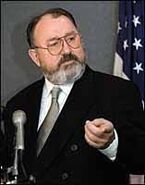
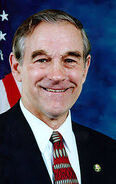
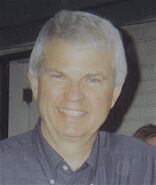
![Schwarzkopf.jpg (27 KB) Retired General Norman Schwarzkopf (FL) [draft campaign]](https://static.wikia.nocookie.net/althistory/images/4/48/Schwarzkopf.jpg/revision/latest/scale-to-width-down/185?cb=20200906021612)
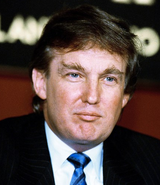
![Jesse Ventura-0.png (130 KB) Gov. Jesse Ventura (MN) [draft campaign]](https://static.wikia.nocookie.net/althistory/images/1/18/Jesse_Ventura-0.png/revision/latest/scale-to-width-down/159?cb=20200906021729)